Tech, Media & Telecom
Samsung, Google to unveil smart glasses next year in deeper AI alliance
Their partnership is expanding from smartphones to home robotics, XR headsets and smart glasses
By Apr 11, 2025 (Gmt+09:00)
3
Min read
Most Read
LG Chem to sell water filter business to Glenwood PE for $692 million


KT&G eyes overseas M&A after rejecting activist fund's offer


Kyobo Life poised to buy Japan’s SBI Group-owned savings bank


StockX in merger talks with Naver’s online reseller Kream


Meritz backs half of ex-manager’s $210 mn hedge fund


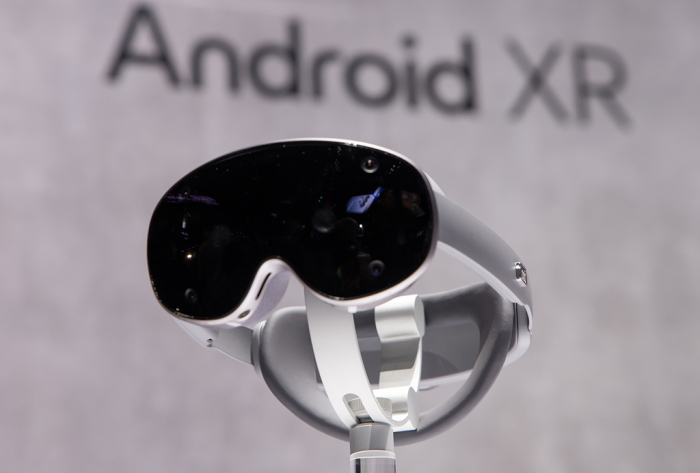
Samsung Electronics Co. and Google LLC are strengthening their long-standing alliance as the artificial intelligence (AI) era redefines the balance of power in the global tech industry.
The two tech giants – longtime smartphone partners, with Samsung supplying hardware and Google powering devices with its Android OS – are now deepening cooperation across next-generation platforms, from home robotics to extended reality (XR) and semiconductors.
Following their latest cooperation on the XR headset initiative known as Project Moohan, meaning infinite in Korean, the two tech firms are jointly working to develop new smart glasses, slated for release next year, people familiar with the matter said on Friday.
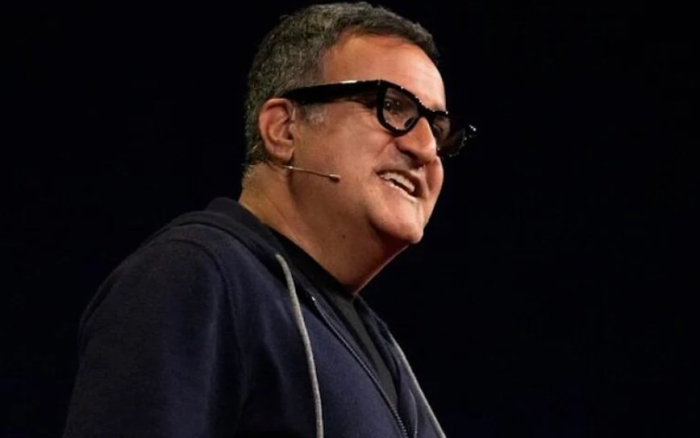
The two companies unveiled images of the smart glasses under development at the XR Unlock event held at Google Campus in New York last December.
Shahram Izadi, a Google vice president in charge of AR and XR, recently wore a prototype of the smart glasses and demonstrated some of its features at the TED2025 conference held in Vancouver, Canada.
ANDROID XR
Last December, Google said its Android XR platform will be installed in a Samsung headset to take on larger headset rivals such as Meta Platforms Inc. and Apple Inc.
Android XR, jointly developed with Samsung, is designed to be an open, unified platform for XR headsets and glasses.
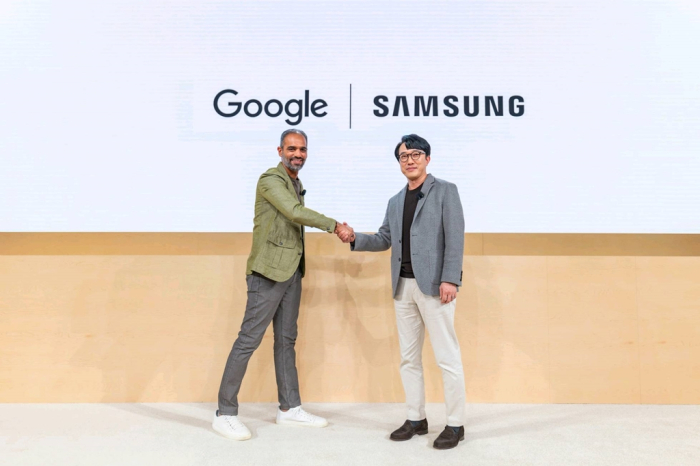
In February 2023, Samsung said it is teaming up with Google and Qualcomm Technologies Inc. to venture into the XR device market, which is forecast to grow to $1.7 trillion by 2032 from $131.5 billion in 2024.
The smart glasses with Android XR, on which Samsung and Google are working, will put the power of Gemini, Google’s AI assistant, one tap away, providing helpful information for users like directions, translations, or message summaries without having to reach for a phone, sources said.
XR is a catch-all term that covers technologies like virtual reality (VR) and augmented reality (AR).
CLOSER THAN EVER
The AI-driven convergence of hardware and software – and the uncertain future of mobile computing – appears to be drawing the two companies closer than ever.
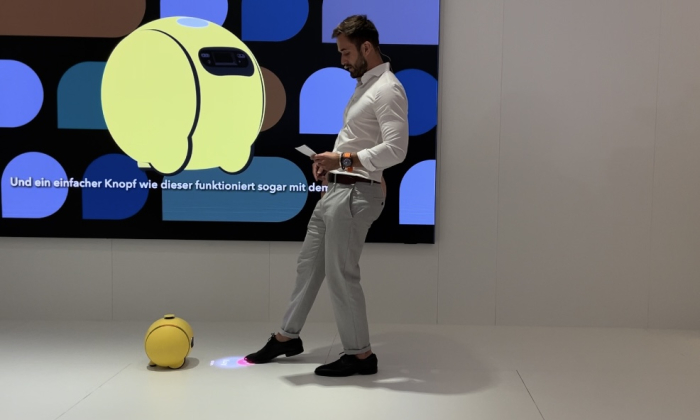
Industry executives point to a private dinner in Seoul last year between TM Roh, head of Samsung's Mobile eXperience (MX) Division, and Rick Osterloh, senior vice president of Devices & Services at Google, as emblematic of the tight-knit ties driving their joint strategy.
Roh was recently named to take charge of Samsung’s overall consumer electronics and mobile devices businesses.
A flagship example of the expanding collaboration is Samsung’s AI-powered companion robot, Ballie, set to launch later this year with Google’s Gemini large language model embedded.
The move is seen as a critical test of how Google’s generative AI can interface with physical computing platforms — and a signal of where the alliance is headed, analysts said.
SAMSUNG’S HBM3E CHIP LIKELY TO POWER GOOGLE TPU IRONWOOD
Semiconductors form another crucial joint front for Google and Samsung.
Industry officials said Samsung is in pole position to supply its next-generation high-bandwidth memory chip, HBM3E, for Google’s custom AI accelerator, the Ironwood tensor processing unit (TPU).
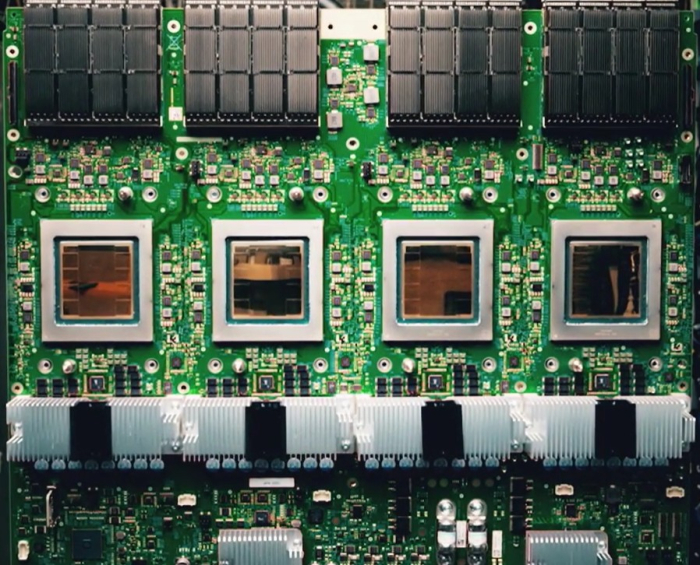
The partnership, if confirmed, would further entrench Samsung in the AI chip supply chain as cloud giants race to secure reliable high-performance memory for training large-scale models.
“The AI era is forcing a reconfiguration of old alliances,” said an industry executive. “Google needs robust hardware partners, and Samsung needs to stay relevant in a world where software is increasingly central.”
Yet, the relationship is not without friction.
Google continues to nurture its own hardware ambitions through its Pixel smartphone line and has increasingly shown signs of hedging – shifting part of its advanced TPU production to Taiwan Semiconductor Manufacturing Co. (TSMC), Samsung’s chief foundry rival.
“To preserve the alliance’s strategic value, Samsung must recover the kind of technological dominance that once allowed it to command partnerships on its own terms,” said a chip analyst.
Write to Jeong-Soo Hwang at hjs@hankyung.com
In-Soo Nam edited this article.
More to Read
-
 Tech, Media & TelecomGoogle unveils Android XR platform to launch on Samsung headset
Tech, Media & TelecomGoogle unveils Android XR platform to launch on Samsung headsetDec 13, 2024 (Gmt+09:00)
2 Min read -
 RoboticsSamsung’s Ballie, LG's Q9 AI robots steal the show at IFA 2024
RoboticsSamsung’s Ballie, LG's Q9 AI robots steal the show at IFA 2024Sep 06, 2024 (Gmt+09:00)
2 Min read -

-
 Tech, Media & TelecomSamsung’s next frontier: XR in partnership with Qualcomm, Google
Tech, Media & TelecomSamsung’s next frontier: XR in partnership with Qualcomm, GoogleFeb 02, 2023 (Gmt+09:00)
3 Min read
Comment 0
LOG IN


